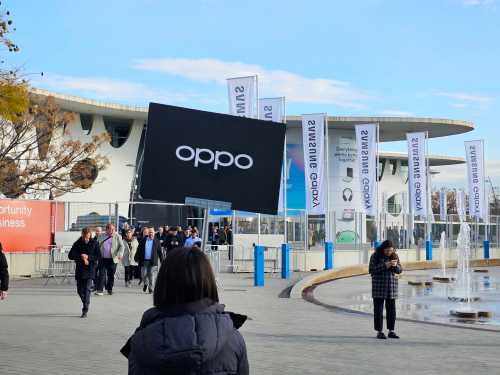Oppo Disbands Young Chip Design Unit Zeku Amid Global Economic Uncertainty
A Surprise Move by Oppo: Reversing Course on In-House Chip Development
Chinese smartphone giant Oppo has made a surprising decision to disband its young chip design unit, Zeku. This move comes as the global economy and smartphone industry face uncertainties, forcing major handset manufacturers to cut costs and restrategize. Despite Oppo’s efforts to bolster its in-house chip development amid rising geopolitical tensions with the U.S., which threaten to cut Chinese firms off from key suppliers, the company will now have to rely on third-party chip partners.
A Decline in Shipments: The Global Smartphone Market in Q1 2023
While Oppo managed to finish Q1 2023 as the world’s fourth-largest smartphone vendor, its shipment dropped by 8% according to market research firm Canalys. This decline is part of a broader trend affecting all top phone makers except Apple, with the global smartphone market shrinking by 13% in the quarter.
Oppo’s Explanation: A Difficult Adjustment for Long-Term Development
Oppo explained its decision to cut its once-promising chip team in a statement issued today:
‘Due to the uncertainties in the global economy and the smartphone industry, we have to make difficult adjustments for long-term development. Therefore, the company has decided to cease the operation of Zeku.’
The Rise and Fall of Zeku: A Brief History
In December 2021, Zeku revealed its first self-developed chipset, MariSilicon X, a neural processing unit designed to boost photo and video performance through machine learning. This move was seen as Oppo’s path to bring chip design in-house following Apple’s lead. Zeku also set up a research base in Palo Alto.
The Abrupt End of Zeku: Uncertainty for Its Employees
Given that Zeku was still hiring over 100 positions just a month ago, the end of Zeku comes off as abrupt. It is unclear how this move will affect the more than 2,000 employees at Zeku, which has been offering competitive salaries to attract talent from other established chip firms. Oppo is reticent about the whereabouts of the team for now, stating only that ‘the company will properly arrange related matters and continue to deliver great products and service to users worldwide.’
The Struggle for Chinese Phone Companies: Strengthening Control Over Semiconductor Supply Chain
Oppo’s retreat from chips signals another struggle by Chinese phone companies to strengthen their control over the semiconductor supply chain. Huawei lost access to advanced chips from the U.S. due to Trump-era sanctions, and its attempt to design its own high-end chips through HiSilicon floundered after the U.S. cut off major foundries. The company resorted to spinning out its budget handset brand Honor, a move seen as a way to help the subsidiary circumvent the sanctions that have decimated Huawei’s consumer business.
Oppo’s First Self-Developed Chip: Focusing on Imaging Performance
Oppo’s first self-developed chip is all about imaging performance. This focus on enhancing photo and video capabilities through machine learning was a significant step in Oppo’s effort to bring its own chip design in-house.
Conclusion
The decision by Oppo to disband Zeku, its young chip design unit, highlights the challenges faced by Chinese phone companies in strengthening their control over the semiconductor supply chain. Amidst global economic uncertainty and geopolitical tensions, Oppo will now have to rely on third-party chip partners. The move raises questions about the future of Zeku’s employees and Oppo’s strategy for chip development.
Related Topics:
- China
- Chip
- Hardware
- Oppo
- Semiconductor
Author Information:
Rita Liao, Reporter, China
Rita covered Asia for TechCrunch, with a special interest in Chinese companies going global and web3 projects with real-world applications.
Before her previous writing stints with Tech in Asia and TechNode, Rita managed communications for SOSV’s accelerators in Asia. At one point, she worked for a documentary production company and a mindfulness retreat center in New England.
She studied political science and visual arts at Bowdoin College.
Contact: ritaliao@pm.me
Newsletter Subscription:
Subscribe to our newsletters for the latest tech news:
- TechCrunch Daily News
- TechCrunch AI
- Latest in Hardware









